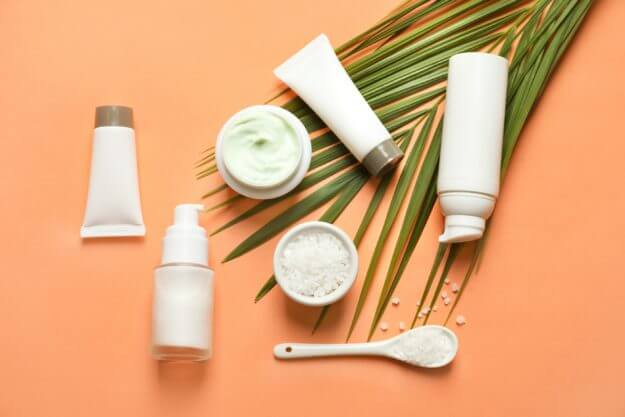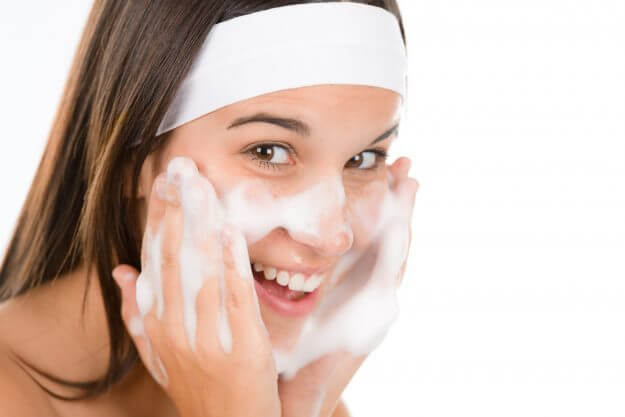Sulfates have been an integral part of our lives, more specifically our daily grooming rituals. Whether or not you have been conscious about your choices of skincare products and other essentials, you have used shampoos, shower gels, cleansers or washes, foams and shaving creams containing sulfates. Cleaning agents or detergents also use sulfates.
It is difficult to generalize all sulfates as there are hundreds of different compounds containing sulfur and their effects, be it positive or negative, are not identical. Some sulfates are completely safe as there is no scientific evidence suggesting any adverse impact on our health. Some sulfates are questionable and a few are definitely unsafe. It is necessary to explore the proven and possible ramifications of using products that contain sulfates.
What Is A Sulfate?
Sulfates are a compound. One of the components of such a compound is sulfur. There is plethora of sulfates including natural and manufactured compounds. Sulfates are used in various grooming products for two reasons. Sulfate compounds serve as surfactants and emulsifiers.
Surfactants are compounds or substances that reduce the friction or tension on a particular surface when the liquid containing the ingredient is applied and comes in direct contact, is also potentially rubbed or massaged. Emulsifiers are compounds or substances that stabilize a processed product.

When two or more ingredients are blended to form an emulsion, the resulting liquid or substance may not be entirely stable. It is possible the two or more ingredients would get segregated after being blended. Emulsifiers are additives that help maintain the emulsion and also keep the resulting product stable.
Why Sulfates Are So Popular
It is not hard to imagine why sulfates are so widely used in so many products considering the obvious need of a surfactant and an emulsifier. One may wonder why some other surfactants and emulsifiers are not used when there has been so much debate about sulfates and their safety. This does not have a definite answer because the reasons can vastly vary.

Sulfates are easy to produce and hence economic to be used in various products. Sulfates can also be produced on a massive scale. Sulfates are also deemed suitable for the skincare, hair care and other grooming products. Since most sulfates have been cleared of the allegations that they cause cancer and other short term to long term effects on health, many companies continue to use such compounds.
Types of Sulfates
Sulfates are responsible for the lathering or foaming of products when you apply them and gently massage them on your hair or skin. This lathering or foaming helps the cleansing process. You do not feel any uncomfortable tension or friction on your skin or hair. Sulfates can dissolve in oil or water. They mix really well and do not require any other substance to keep them stable in the mix. Sulfates are also effective at removing different types of grease or stains.
Sodium Lauryl Sulfate
There are many types of sulfates but the most common ones are sodium lauryl sulfate and sodium laureth sulfate. These are mentioned on labels of products as SLS and SLES respectively. While all sulfates contain sulfur, the proportion or concentration varies. Hence, it is wrong to assume that every sulfate contains a lot of sulfur.
Likewise, it is also wrong to assume that a sulfate compound has no other questionable elements than sulfur. Most sulfates used in grooming products contain lauryl alcohol. This is a naturally occurring alcohol sourced from plants. Coconut oil is also a major source. Companies use lauryl alcohol and sulfuric acid along with other necessary ingredients depending on the specific formula they have for a particular sulfate compound to form a stable surfactant and emulsifier. Sulfur is found in nature but that yellow solid elemental sulfur is not used in mass production of synthetic sulfates that make their way into skincare products and grooming essentials.
Effects Of Sulfates On Health
Both SLS and SLES serve as surfactants and emulsifiers. Some products may contain both these sulfates. SLS or sodium lauryl sulfate is harsher than SLES or sodium laureth sulfate. This is why many people report having some problems with their hair and skin after using products containing SLS

These problems could be transient such as dry hair or skin, temporary damage such as dullness or paleness and long term adverse affects such as signs of premature ageing of the skin and hair. Many people experience irritation, not just on the skin and scalp but also in their eyes. Sulfates can cause inflammations on the skin, itchiness and redness as well as infections but most people do not experience any such side effects.
Sulfate By Products
SLES is not as harsh as SLS but it has a byproduct called 1,4-Dioxane. Scientific evidence suggests that 1,4-Dioxane is a carcinogen. The compound can cause cancer. Not all products containing SLES will cause cancer as the quantity of the byproduct will determine the exposure and hence the potential risk. Many companies produce SLES and take additional steps to get rid of the byproduct 1,4-Dioxane before they use the sulfate in their products.


 Three Types of Cleansers
Three Types of Cleansers  Top 5 Cleansers For Combination Skin
Top 5 Cleansers For Combination Skin  Top 10 Holy Grail Skincare Products
Top 10 Holy Grail Skincare Products  5 BEST ELF SKINCARE PRODUCTS TO TRY
5 BEST ELF SKINCARE PRODUCTS TO TRY  Why You Need A Different Skin Routine For AM & PM
Why You Need A Different Skin Routine For AM & PM  The Common Face Washing Mistakes You Might Be Making
The Common Face Washing Mistakes You Might Be Making